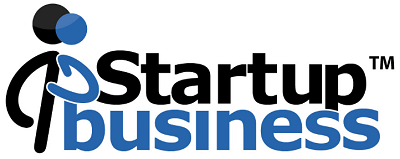
The Role of HR Placement Consultants in Modern Business
In the current competitive corporate world, the search for the right talent has become tougher than ever. Businesses are forever on the lookout for skilled professionals not just with the required competencies but also whose values and organizational culture match their own. This is where hr placement consultants step in, playing the critical role of the go-between for businesses and prospective employees. These niche experts have revolutionized the recruitment sector with their customized solutions addressing the distinctive hiring requirements of contemporary organizations. Their skill is not limited to mere vacancy-filling but is about building strategic alliances that enable long-term business prosperity and growth.
.The Changing Face of Recruitment
The recruitment sector has also evolved drastically through the decades. What was once a straightforward process of publishing newspaper ads and word of mouth referrals has become a complex multi-touch process supported by various technologies. The older ways of hiring often were cumbersome and not efficient, as firms would have difficulty finding suitable candidates who met their needs. This inefficiency provided a gap in the market that was being filled by specialist recruitment firms. With more businesses realizing the benefit of outsourcing hiring requirements, there was an enormous demand for full-time hr placement consultants that saw the formation of a new professional industry devoted entirely to recruitment and placement.
.Knowing What HR Placement Consultants Do
Deep down, HR placement consultants are like professional matchmakers in the workplace. They work hard to know both the requirements of their client firms and the strengths of prospective candidates. This gives them the ability to make productive matches that both parties can gain from. As opposed to in-house HR departments that perform a variety of employee-related tasks, placement consultants focus exclusively on sourcing, screening, and obtaining leading talent. Their expert understanding of industry trends, salary levels, and candidate availability makes them indispensable allies in the recruitment process. They are basically master guides in the intricate and sometimes daunting talent market.
.Key Services Offered
The services offered by placement consultants go far beyond merely forwarding resumes to hiring managers. These experts carry out extensive market studies to find likely candidates, including those who are not actively on the lookout for new opportunities. They thoroughly sift through applicants via extensive interviews, ability tests, and background verifications to only present the most capable individuals to their clients. Consultants also give helpful advice on competitive salary and benefit packages that will entice top performers. In addition, they frequently provide interview coordination, negotiation services, and onboarding assistance to facilitate an easy transition for the employer as well as the new employee.
.The Strategic Advantage for Companies
Hiring an hr recruitment consultant provides tremendous strategic benefits for companies of any size. Most critically, these professionals significantly lower the time-to-hire metric, enabling companies to fill key positions more quickly and reduce productivity loss. Their large networks and industry relationships offer access to a broader talent pool than most businesses could find on their own. Professional consultants are also objective in the hiring process, assessing candidates only on qualifications and suitability and not on personal agendas. Such objectivity tends to result in improved hiring decisions and lower rates of turnover, saving organizations significant amounts of money in repeated recruitment cycles.
.Specialized Industry Knowledge
Perhaps the most essential skill that the best placement consultants can offer is in-depth, industry-specific insight. Most of them are specializing in specific domains like technology, healthcare, financial, or manufacturing industries, having extensive knowledge regarding specific terms used, qualifications sought, and hurdles of each vertical. This focused experience helps to locate candidates whose unique skill profiles even generalist recruiters may never catch. They remain up to date with new trends, sought-after certifications, and changing job needs in their target industries. This knowledge is especially valuable when staffing specialized technical positions or executive positions that demand niche experience and expertise.
.Creating Strong Talent Pipelines
Innovative consultants don’t only work on current hiring needs but aim to create strong talent pipelines for their client firms. These pipelines are made up of pre-screened, qualified professionals who may be ready to fill future vacancies. Having regular contact with potential professionals across different industries allows consultants to provide options immediately when openings arise. This forward-looking strategy greatly decreases hiring lead times and provides companies with access to quality candidates even in tight markets. The creation and sustenance of these reservoirs of talent are one of the most prized long-term advantages of developing relationships with committed placement professionals.
.Adjusting to Advances in Technology
The face of recruiting has been overhauled with technological advancements, and effective consultants have adapted this to improve services. Placement specialists today use complex applicant tracking programs, artificial intelligence screening software, and data science to spot highly potential candidates better. Most employ social media resources and professional connections to find non-active candidates not actively seeking job opportunities but might be willing when approached.
.Navigating Evolving Work Models
The past several years have seen a sudden revolution in work models, with flexible, hybrid, and remote setups becoming a norm. Placement consultants have been a godsend to companies by guiding them through these transitions by locating candidates who could perform optimally in these new settings. They evaluate not just technical competencies but also soft skills such as time management, communication, and self-motivation that are highly important for performance in distributed teams. Consultants usually recommend firms how to organize jobs to fit these new work patterns without sacrificing productivity and team spirit. Their advice keeps organizations competitive in recruiting talent that increasingly values flexibility and work-life balance.
Conclusion
In the constantly changing business environment, HR placement consultants have become a vital part of organizational success. Their deep expertise, extensive networks, and strategic means of talent attraction create value extending well beyond plugging open spots. As companies remain challenged with gaining qualified professionals in competitive climates, the mission of these consultants is bound to be even greater. By creating connections between business firms and future workers, they meaningfully augment productivity, creativity, and business expansion in workplaces. For companies dedicated to developing high-performing teams, collaborating with these specialized recruitment experts is not just expenditure but an investment in future achievement and competitiveness.


